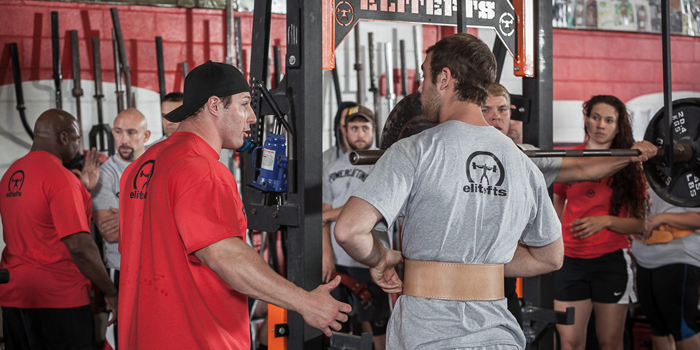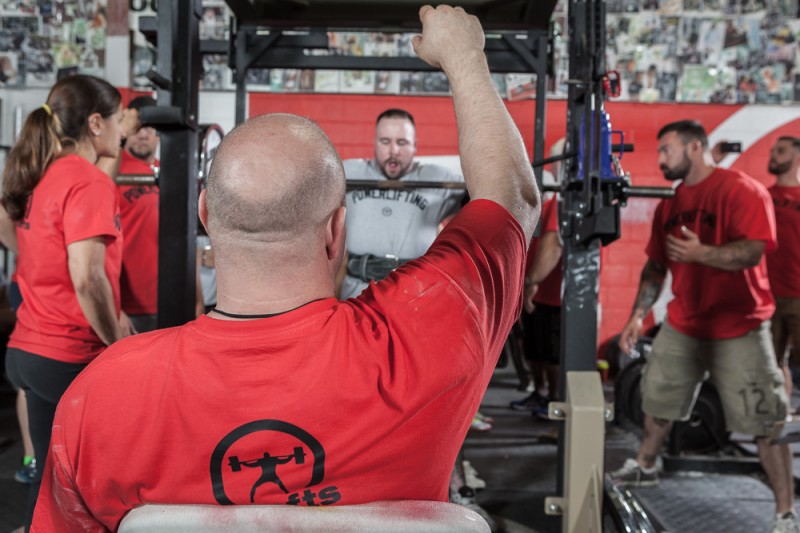
“You know a workman by the chips they leave. It’s true. To judge your progress properly, just take a look at the floor.”
Young lifters, allow me to stand on my soapbox for a moment. I have been training in some capacity for the majority of my life. I turn 30 in December and I competed in my first powerlifting meet at 14. In 15 years of training, I can say with certainty that I haven’t spent longer than two months without lifting (outside of this recent illness, which for all intents and purposes we’ll call a fluke). So, what I’m getting at is that I’ve learned some things on lifting and longevity. In the same breath, I still have a shit-ton to learn. And I know I’m not qualified to speak on certain topics. However, when it comes to mindset and expectations, I think I’m well versed. So let me introduce you to a young gentleman from my gym.
We have a young buck that started training at Union Fitness a few months back. He was insistent upon aggressive linear periodization and how “easy” it would be to get strong. I was immediately worn out by his unbridled enthusiasm because I’m an old grumpy fuck at heart. Either way, he wanted to get stronger so I gave him 5/3/1 and outlined his assistance work. He followed it, making his own tweaks along the way, basically going for a max five, max three, and max single each week. As week four approached, he let me know he didn’t need a deload. I also informed him he no longer needed my assistance. I don’t have the patience to convince someone they need guidance.
WATCH: The Type of Training Programs I Have Used
I wrote him off for the next month. In all of our previous conversations, everything he talked about involved maxing out or being as strong as so-and-so on Instagram. The problem was, he didn’t have any chips on the floor. He wasn’t putting in the work to create any value (or strength in this case). I told him I wouldn't help him unless he was going to do EXACTLY as I told him. So when the time came, meaning I was in a good mood and he stopped bugging me incessantly, we started this relationship over. I gave him some very simple instructions: main movement at x percent for five sets of five (CAT style training), and then the main assistance work for each day. I told him if he followed that for four weeks he could come train with us. And to his credit, he did.

So week one of him training with us, he pulled 405 for two sets of five from a deficit. Great. Week two rolled around and he only managed 405 for four on his first set. He was obviously just fatigued, but it was exactly what I wanted him to do: fail in a scenario where he felt like he shouldn’t. In his mind, progress is linear. In his mind, every week he should be able to know exactly where his strength levels are. The realization started to set in for him. We can’t just add more weight to the bar every week and expect to get better.
Here’s the takeaway. It seems like every couple weeks I come across the casual statement, “I just want to test to see where I’m at,” coming from social media, online clients, or gym members. Now, if it’s a point in your program where you need to test—maybe the beginning or end of a training cycle—that makes sense to me. But when it’s the same guy every other week just checking to see where he’s at, I can tell you where he’s at: the same place as last time.
"You know a workman by the chips they leave."
We’ve all heard "back to the grind", but do you know where the saying comes from? How about “nose to the grindstone”? There are arguments over the origin due to some translation issues, but all we need here are the basics. A craftsman using a grinding wheel had to have his head in his work for safety reasons, but also for productivity. If he picked his head up every couple minutes to admire his work, he wouldn’t get anything done. It's the same for a lifter testing every few weeks to admire their work: it will leave them without much to admire.
Young lifters, listen up. Have some faith in your program and your ability. Pick a tried and true program and follow it for six months at a minimum. Have faith that you can get stronger, and it’s not the perfect program working magic on your muscles. (And it’s not those fucking supplements either.)
MORE: The Gift of Perspective: Things to Know as a New Powerlifter
Your progress is on the floor. Progress, for the young lifter, is doing the work daily. Putting in the time both inside and outside of the gym. Eating right. Getting to bed on time. Waking up and attacking the day. Learning at every opportunity.
The legends that came before you understood this. They didn’t get there by testing. They didn’t check to see where they were. They set their goals and put their nose to the grind without looking up until they got to the platform. The platform was their payoff. Every lifter has an ego. We lift to be better than we were yesterday. But that only happens when you’ve paid your dues, day in and day out, for months on end.











3 Comments